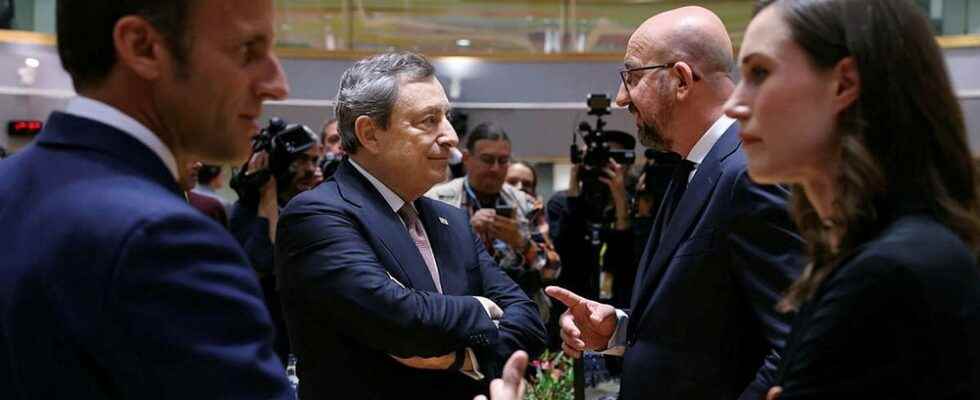Late Monday night, the EU’s 27 heads of state and government were able to agree on a new sanctions package against Russia, the sixth since the country attacked Ukraine in February. This package is the strongest aimed at the Russian economy as it hits export revenues from oil.
EU leaders have agreed that crude oil and oil products should be included, according to a draft that DN has read. However, it will be a temporary exception for crude oil delivered via pipeline. The exemption has been enforced by Hungary and a number of countries in Central and Eastern Europe, including the Czech Republic, Slovakia and Bulgaria, which are heavily dependent on Russian crude pipeline oil.
Thus, between 20 and 30 percent of Russian oil exports to the EU are temporarily excluded. The vast majority go by ship.
When the European Commission presented its proposal for an oil shutdown almost a month ago, it was proposed that it should enter into force within six months. Exactly when the stop will now begin, and how long the exemption for oil in the pipeline will be, is not yet known.
The EU summit began with the participation of Ukrainian President Volodymyr Zelensky on a video link from Kyiv. At previous meetings, he has harshly criticized Hungary. This time, Zelensky held a more conciliatory tone.
In light of, among other things, the continued killing of civilians in Ukraine, Zelensky appealed for the EU countries to stand united and show their collective strength vis-à-vis Russia.
– It is only the Russian state that should be blamed for what happens. But I am convinced that it is obvious to each of you that the sanctions must proceed for this aggression. For us, it is crucial. And that would help us a lot, the president said.
Hungarian Prime Minister Viktor Orbán is the one who has most strongly criticized the European Commission’s latest sanctions package. He has pointed out that Hungary would have very big problems with its energy supply if all imports of Russian oil ceased.
On Monday evening, he emphasized in particular that Hungary must receive guarantees in the event of a sudden cessation of oil coming via a pipeline in Ukraine. The latest statement from the EU summit now states that in the event of sudden supply disruptions, emergency measures must be taken to secure energy supply.
Read more.
DN charts: Europe has reduced its energy imports from Russia
Ukraine: Rock hard pressure on EU over Russian energy ban
